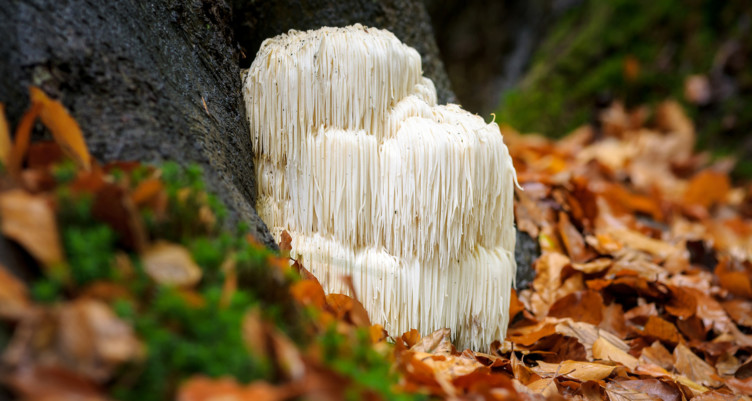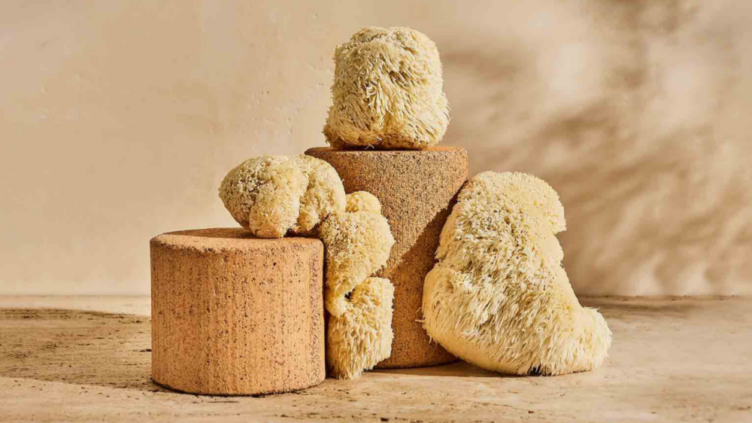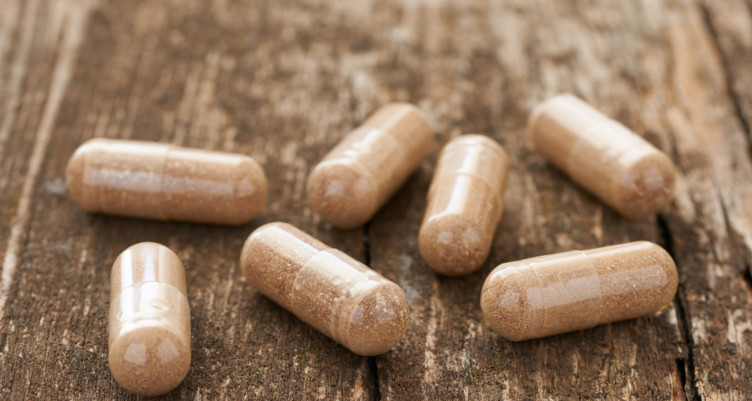How Lion’s Mane Mushroom Benefits Memory, Focus and Mood

- Studies show that lion’s mane mushroom may support brain health. The benefits stem from its soothing properties.
- Animal studies show that lion’s mane mushroom may increase levels of BDNF, a protein that supports brain health.
- For a potent way to increase BDNF levels, try Energy + Focus, which contains whole coffee fruit extract to keep you focused and sharp.
Lion’s mane mushroom earned its common name because some say it looks like a lion’s mane. This fluffy white mushroom is also a powerful nootropic with science-backed benefits.
You might have heard of people mixing lion’s mane into their coffee or supplementing with lion’s mane mushroom capsules. As it turns out, if you want to remember better, age gracefully and support cognitive health, lion’s mane may be worth your time. Here’s what you should know, including a few tips to embrace the neurosupportive benefits of this mushroom.
Lion’s mane mushroom benefits
With roots in traditional Chinese medicine (TCM), lion’s mane mushroom (botanical name: Hericium erinaceus) is also known as yamabushitake, hedgehog mushroom and houtou[1]. This mushroom has powerful soothing, antioxidant and immune supporting properties.
Supports brain health

Your brain naturally slows down over time. Many symptoms associated with aging—like memory and focus comlpaints—are caused by factors in your nervous system like shrinking neurons and damaged brain cells. Animal studies show that lion’s mane mushroom extract may actually support brain health.[2][3]
May support cognitive function

In 2008, a double-blind, parallel-group, placebo-controlled trial found that lion’s mane effectively supported cognitive function in a randomized group of 15 older adults.[4] Rodent studies found that lion’s mane potentially may have protective effects on brain cells, support memory and promote the creation of new neurons.[5][6]
Mood and focus

In 2010, in the largest study to date, researchers examined the effects of lion’s mane mushroom on 30 women over a four-week period.[7] The participants were randomly assigned to a test group or a control group, and they were given lion’s mane mushroom cookies or placebo cookies (science!). At the end of the four weeks, the lion’s mane mushroom group reported more positive moods.
This was a small study, and clinical research on lion’s mane is limited. However, these findings complement a growing body of research that suggests natural treatments can help you feel more balanced.
Lion’s mane may support focus, too. Improved blood flow provides your brain with more oxygen. The side effect of more oxygen in your brain is better brain performance. The antioxidants in lion’s mane may help support learning and memory, possibly by supporting your brain and neurons.[8][9]
How to take lion’s mane mushroom

Lion’s mane mushrooms have been a part of traditional Chinese medicine for millennia, as a food with functional benefits. But what’s the best way to add it to your diet?
How to cook lion’s mane mushroom
You can prepare and cook lion’s mane mushroom like any other soft-fleshed mushroom. It tends to be in season in the late summer through fall. When cooked, it has a flavor and texture similar to crab or lobster.
If you don’t live in an area where this mushroom is available in farmers markets or the grocery store, you can also take lion’s mane in capsule form.
As with any supplement, lion’s mane mushroom delivers more benefits when taken consistently, and dietary supplements are generally more convenient than cooking. Keep reading for our top recommendations.
Lion’s mane mushroom capsules (and other supplements)
Lion’s mane supplements are available as capsules, extracts and powders. However, you need to do your research and make sure your supplementation comes from a reputable company.
You should be able to determine how much of the useful bioactive compound you’re getting in your supplement and how much is actually filler.
Start with half a serving and slowly increase your dosage based on how your body responds. Talk to your health care provider for advice before you add anything new to your supplement routine.
Other ways to support brain health

Bulletproof Energy + Focus is made with coffee fruit extract, which contains compounds shown to support memory, focus and healthy aging. To start your smart routine, take one capsule in the morning.
Read this next: Does Your Gut Control Your Immune System? The Science Behind the Connection
Sign up for early access to sales, product launches, the latest Bulletproof news and more!
This article was originally written on March 10, 2022 and has been updated with new content.



